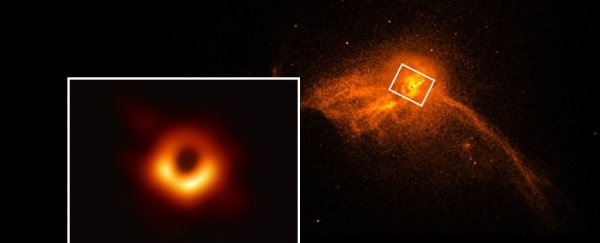Less than a week ago, the world was blown away by the first-ever direct image of a black hole's event horizon. But this now world-famous object doesn't really have an official name, although a few options are now vying for legitimacy.
The galaxy that contains this supermassive black hole is called NGC 4486 or Messier 87 – M87 for short. So astronomers have denoted the object as M87* (the asterisk refers to a black hole, just like Saggitarius A* refers to the likely black hole in our own galaxy).
In collaboration with astronomers, a Hawaiian language professor has now given M87* a more poetic name. It's 'Pōwehi', and it means "embellished dark source of unending creation", which sounds… pretty spot on.
"To have the privilege of giving a Hawaiian name to the very first scientific confirmation of a black hole is very meaningful to me and my Hawaiian lineage," Larry Kimura from the University of Hawaii-Hilo said in a news release.
Although it's beautiful, Pōwehi isn't the new official name, despite what you may think at first.
"This isn't astronomers naming this," Jessica Dempsey, deputy director of the James Clerk Maxwell Telescope on Mauna Kea, told the Associated Press (AP).
"This is coming from a cultural expert and language expert. This is him coming to the table and giving us a gift of this name. It's a gift from Hawaiian culture and history, not the other way around."
So whether you call it M87* or Pōwehi, both of these names are unofficial. The only way to get an official name would be through the International Astronomical Union, but their work mostly concerns bodies within the Solar System, along with stars, constellations, and some guidelines for working designations of other objects.
They've never had to name a black hole before.
But coming up with new designations is part and parcel of the process, especially when a relatively niche space object suddenly becomes a huge deal - so we're sure there will be more unofficial names to come.
"Virtually every object in the sky has more than one designation," Rick Fienberg, an astronomer from the American Astronomical Society, told AP.
"The constellations have their official IAU sanctioned names but in other cultures, they have other names."
For now, we do like the sound of Pōwehi. Welcome to the galactic family!
